Malcom Turnbull, Christine Holgate stories highlight decline of modern politics and media

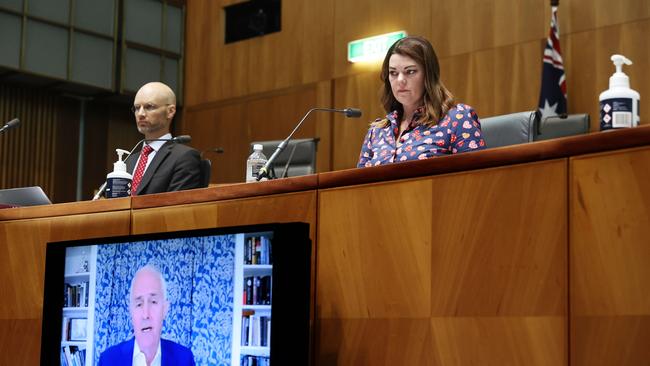
Senate Estimates heard from former Australia Post chief executive Christine Holgate on Tuesday. The hearing was chaired by Greens senator Sarah Hanson-Young, as was Monday’s Senate inquiry into media diversity in Australia, when former PM Malcolm Turnbull claimed Rupert Murdoch was a threat to democracy.
Reporting of both hearings shows why conservative voters are grateful they have the Murdoch papers. Most other news sources are driven by the values of social media platforms that inform the coverage of the ABC, most free-to air television, most of the Nine newspapers, Guardian Australia, the trade union-owned New Daily, Crikey and The Conversation.
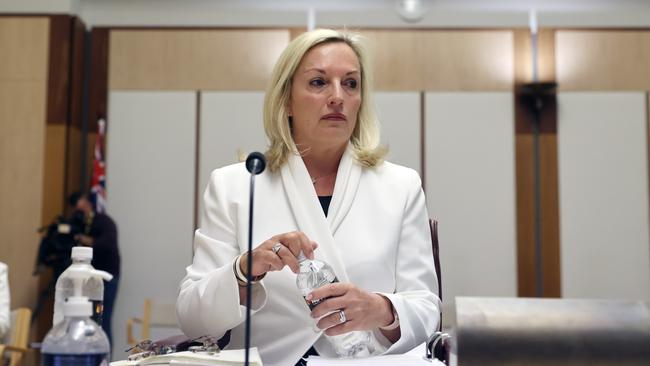
ABC 7.30 political editor Laura Tingle on Tuesday and Fran Kelly on RN Breakfast on Wednesday covered the Holgate story. Neither Tingle’s interview with Holgate nor Kelly’s with Hanson-Young discussed the origins of allegations that precipitated Holgate’s departure over the award of four $4988 Cartier watches to senior executives in 2018. Nor did another of Turnbull’s media favourites, the Guardian, see much need to discuss Labor’s role in the affair.
While Prime Minister Scott Morrison went over the top in his reaction to the watches story last October, the pursuit of Holgate was driven by Victorian Labor senator Kimberley Kitching. Holgate was heavily criticised at the time by Hanson-Young, and Opposition Leader Anthony Albanese demanded Holgate resign. The role of Labor and the Greens in the Holgate pile-on did make the front page of this newspaper and page two of The Australian Financial Review. Yet the left media has allowed Holgate to claim she was the victim of sexism even though two of her initial pursuers were women: Kitching and Hanson-Young.
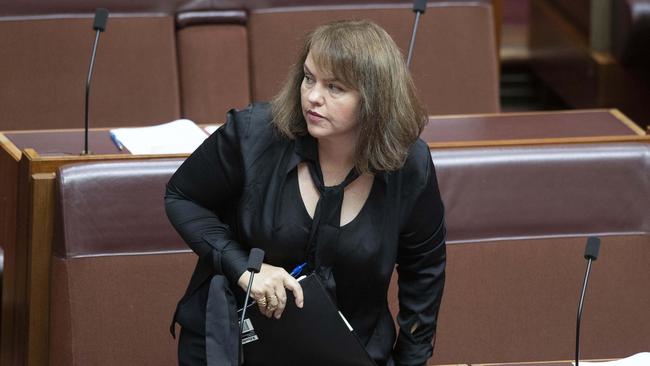
Morrison should never have joined that initial left-wing attack. He played the politics because the government was fending off damaging allegations on a number of fronts — there were serious questions over a $30m Western Sydney Airport land deal, the sports rorts affair was in full swing and there were clouds over spending by former ASIC boss James Shipton. The PM should have defended Holgate, knowing that spending on the watches was tiny compared with bonuses in other publicly owned enterprises, such as the $80m in bonuses paid to NBN executives last year.
As usual, Turnbull could not resist another pile-on against Morrison, tweeting: “The public bullying of Christine Holgate is one of the worst episodes of brutish misogyny I have seen in politics. The PM should apologise.”
Turnbull did not mention Labor’s role in the affair. And few reporters mentioned the hypocrisy of Kitching who wore “suffragette white” to the hearing in solidarity with Holgate when she had led the lynch mob in the first place.
Nor did journalists reporting on Turnbull’s criticism of News Corp (publisher of The Australian) observe that he received unanimous support in the 1990s from the company’s newspapers for his failed push for a republic — a fact pointed out by this paper’s Dennis Shanahan on the Credlin program on Sky News on Monday night.
Nor were the News Corp papers unanimously negative about Turnbull as PM. Some senior writers were critical while others, such as Paul Kelly and Greg Sheridan, were even-handed.
Like failed Labor PM Kevin Rudd, his partner in the push for a media royal commission, Turnbull did not lose the prime ministership because of Murdoch’s power. Both men were disliked by their own party rooms and lost the prime ministership in internal votes.
The two richest people to have served in federal parliament were never aligned to the values of their parties. And they lacked political skill and courage. Both should have called early elections which they could have won: Rudd had the option to go to the polls in early 2010, rather than dumping the Emissions Trading System he had claimed would solve “the greatest moral challenge of our time”, and Turnbull, who was riding high in late 2015 after toppling Tony Abbott and leading the preferred prime minister polling.
Turnbull went on to lose 39 straight Newspolls, worse than the 30 consecutive losses he used to justify his successful challenge against Abbott.
Turnbull and Rudd consider themselves media experts. They are not, but at least Turnbull has worked as a journalist and legal adviser in media deals. It is worth reading his statement to the inquiry — some of which is thoughtful, but much of it is self-serving.
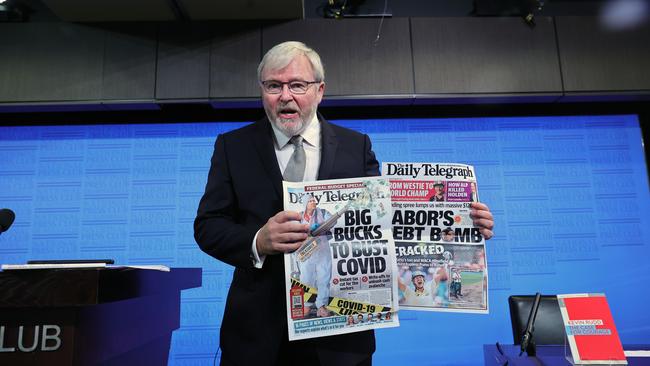
First point: both men link Rupert Murdoch personally to every slight they suffer in the News Corp papers. In my experience, Murdoch almost never involves himself in news coverage and, living in the US, is not close to individual stories.
Both former PMs use the ownership of print as evidence of Murdoch dominance. Yet print newspaper sales and readership are tiny compared with online media traffic.
Turnbull and Rudd both focus on the Queensland print market after News Corp in 2016 bought the APN regional newspapers. They cite front pages hostile to the state Labor government. Yet Labor convincingly won the Queensland elections in 2020 and 2017.
Turnbull says it is not Murdoch’s power with voters that worries him, but the influence of the newspapers and Sky News with Coalition party members. “It’s as though my branch members are having a meeting with Alan Jones and Peta Credlin every night,” he quoted a Queensland Liberal as saying.
Many people during his prime ministership urged Turnbull to do interviews on Sky News. Why not speak to your branches if that is what you think Sky News does? Senior Labor people have done so. Albanese, Labor deputy leader Richard Marles, Joel Fitzgibbon, Kitching and others appear on Sky News regularly. Turnbull even claimed the Morrison government’s news media bargaining code — which requires Facebook and Google to pay for news — is like a mafia shakedown by News Corp.
Yet most media organisations in the country joined the push for the code and many countries in Europe are looking at similar measures.
And then there’s climate change. Turnbull — Mr Harbourside Mansion — and Rudd, who owns on the oceanfront near Noosa, have always sought to curry favour with global elites at the expense of the jobs of blue-collar workers in coal seats. The politics has failed and that’s why Turnbull lost his NSW Clean Energy job on April 6. The NSW government is facing a by-election in the coal seat of Upper Hunter on May 22.
There will be no royal commission into media diversity. Rudd and Turnbull need to shoulder blame for their own failures.

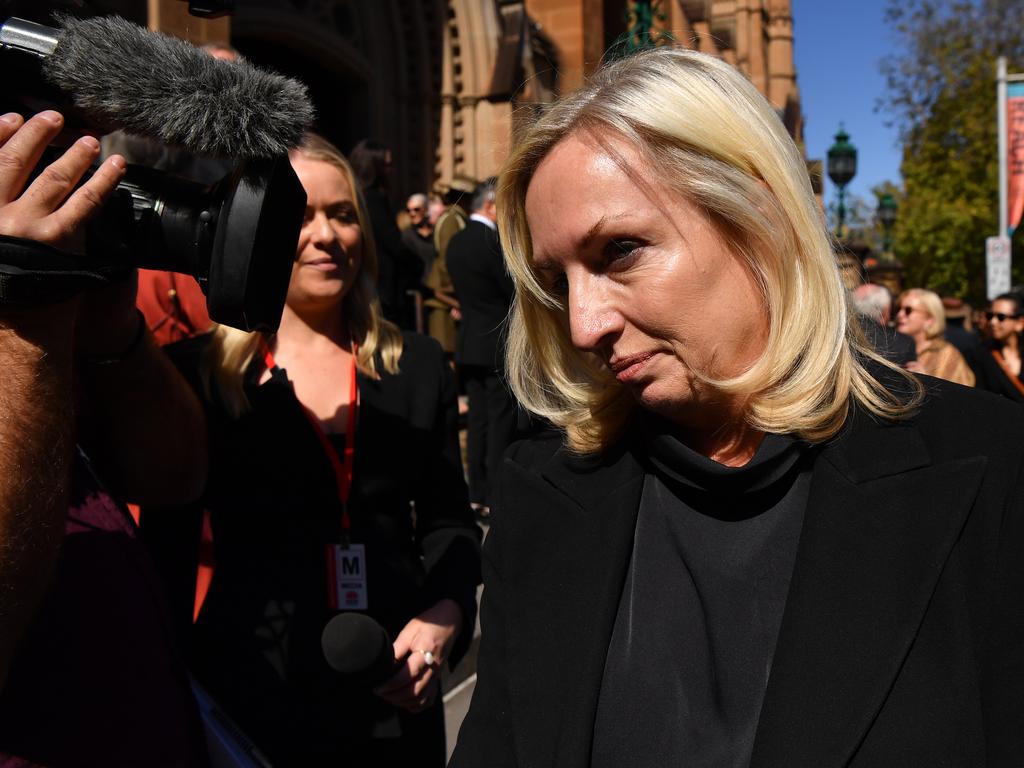
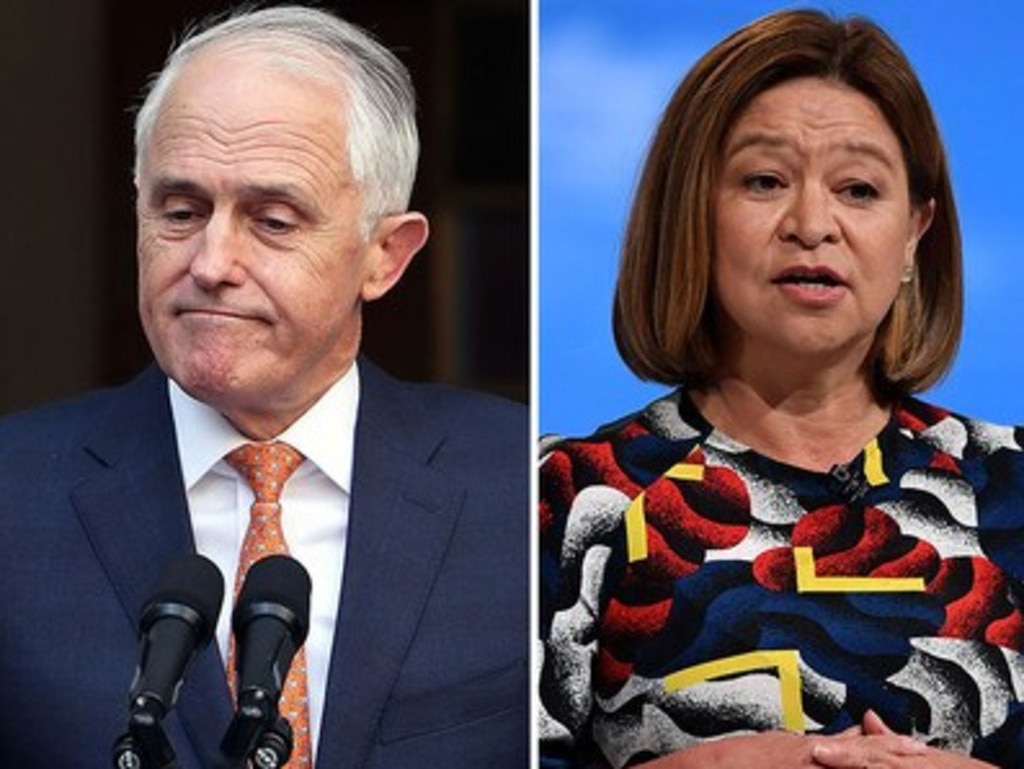
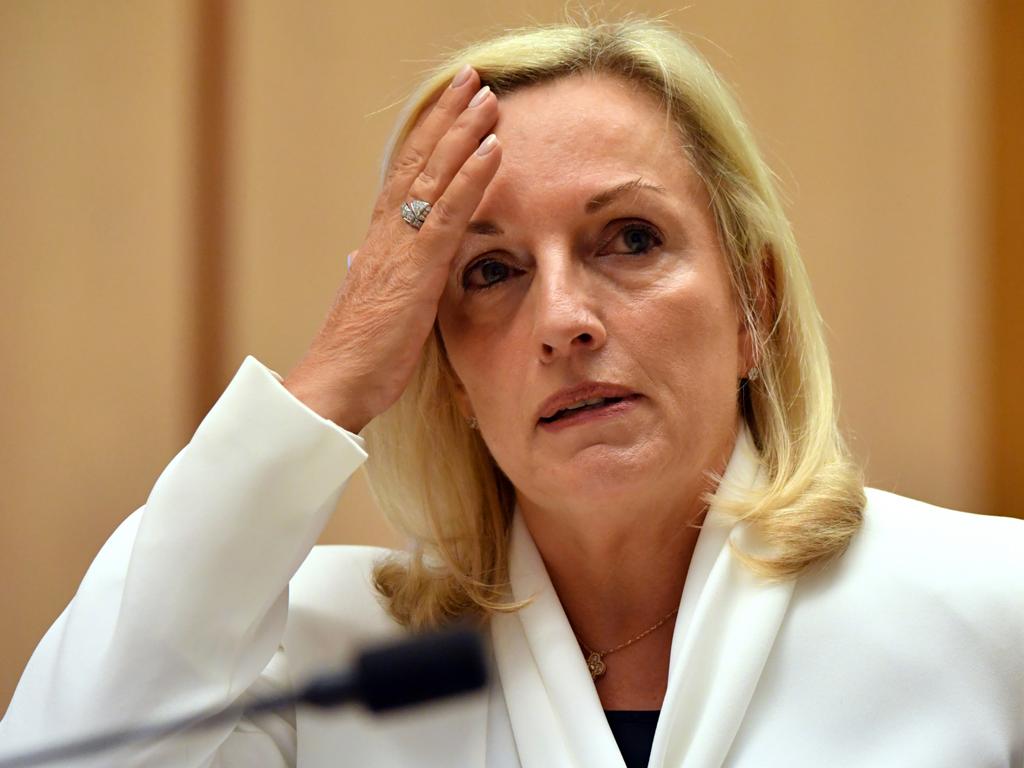



Two Senate hearings last week highlight how shallow modern journalism and politics are.